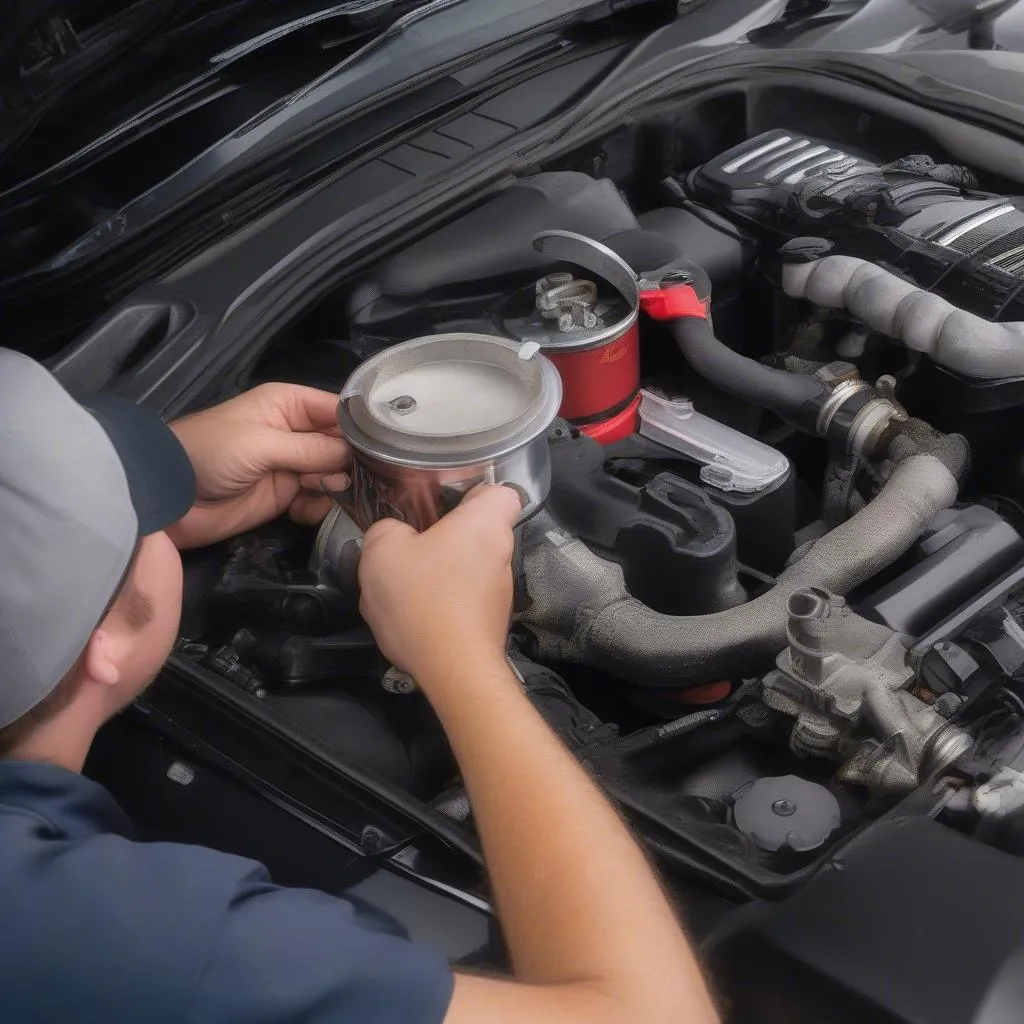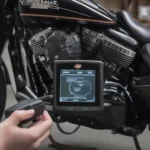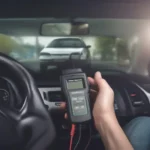Have you ever been driving down the road, enjoying the smooth ride, only to have your car start shaking violently as soon as you come to a stop at a red light? It’s a frustrating and potentially concerning issue. Imagine being stuck at the busiest intersection in Downtown Los Angeles, California, the sun blazing down, and your car starts shaking uncontrollably. You’re not alone! This is a common problem that many car owners encounter, and thankfully, it’s often a sign of a relatively easy fix.
Understanding the Problem
A car shaking at a stoplight is a symptom, not a problem in itself. It’s a sign that something isn’t working right in the engine or drivetrain. Let’s break it down from different perspectives:
Mechanic’s Perspective
Think of your car’s engine as a finely tuned orchestra. Each part plays a critical role, and when one part malfunctions, it throws the whole system off balance. A car shaking at a stop light is like a single instrument playing out of tune, creating a jarring dissonance.
Technical Perspective
When a car is stopped, the engine is running at idle, maintaining a minimal speed. This idle speed is crucial for keeping the engine running smoothly and providing power when needed. If there’s a problem with the engine’s idle speed, it can cause vibrations that translate into shaking in the car.
Economic Perspective
Car shaking at a stop light can impact your wallet in several ways. If left unchecked, it can lead to further damage and require expensive repairs. In some cases, the problem might be simple and cost-effective to fix, but the longer you ignore it, the higher the potential cost of repairs.
Why Does My Car Shake at a Stop Light?
There are several common culprits behind a car shaking at a stop light. Let’s dive into the most likely suspects:
1. Engine Misfire
Imagine a well-coordinated dance routine where one dancer loses their rhythm. This is similar to an engine misfire, where a cylinder doesn’t ignite fuel properly, causing a jarring jolt. This can manifest as shaking, particularly at idle.
Possible Causes:
- Spark Plugs: Worn or fouled spark plugs can prevent proper ignition.
- Ignition Coils: Defective ignition coils can fail to provide the spark needed to ignite the fuel.
- Fuel Injectors: Clogged or faulty fuel injectors can deliver an insufficient amount of fuel to the cylinders.
- Dirty Air Filter: A clogged air filter restricts airflow, potentially affecting fuel-air mixture and causing misfires.
Solution:
The solution for an engine misfire will depend on the root cause. Have your mechanic inspect your spark plugs, ignition coils, fuel injectors, and air filter to diagnose the problem accurately.
2. Vacuum Leak
Picture a tightly sealed container filled with air. If there’s a leak, the air escapes, creating a vacuum. This is similar to a vacuum leak in your car’s engine, where a leak in the intake manifold or vacuum lines can disrupt the air-fuel mixture, resulting in shaking at idle.
Solution:
A skilled mechanic can use a vacuum gauge to pinpoint the location of the leak and repair it.
3. Dirty Throttle Body
The throttle body acts as the gateway for air entering the engine. Over time, it can become coated with grime and carbon deposits, restricting airflow and affecting engine performance. This can lead to irregular idling and shaking, especially at a stop light.
Solution:
Cleaning the throttle body is a relatively straightforward procedure, and you might be able to do it yourself with a few basic tools and a throttle body cleaner.
4. Faulty Oxygen Sensor
The oxygen sensor monitors the amount of oxygen in the exhaust gases, providing feedback to the engine control module (ECM) to adjust the fuel-air mixture. A faulty oxygen sensor can lead to inaccurate fuel-air ratios, causing engine problems including shaking at idle.
Solution:
Replacing a faulty oxygen sensor is usually a straightforward job for a mechanic.
5. Transmission Problems
While less common, transmission issues can also contribute to a car shaking at a stop light. Problems with the torque converter, which connects the engine to the transmission, can cause vibrations that are felt throughout the car.
Solution:
Diagnosing transmission problems requires a specialized mechanic with experience in transmission repair.
Is My Car Shaking At a Stop Light? Common User Questions
Many car owners have similar concerns about their cars shaking at a stop light. Here are some of the most frequently asked questions:
- How do I know if it’s a serious problem? While shaking at a stop light can be concerning, it’s often a symptom of a relatively minor issue. However, if the shaking is severe, accompanied by unusual noises, or gets progressively worse, it’s essential to have your car inspected by a mechanic as soon as possible.
- What can I do to prevent this from happening? Regular maintenance is key! Follow your car’s recommended service schedule and have your engine fluids, spark plugs, air filter, and other essential parts inspected and replaced when needed.
- Will this affect my car’s fuel efficiency? Yes, an engine that is running inefficiently can cause a decrease in fuel economy.
- Can I fix this myself? Some problems, like a dirty throttle body or a bad air filter, can be addressed with basic DIY skills. However, more complex issues like engine misfires or transmission problems are best left to professionals.
Don’t Ignore the Shakes!
A car shaking at a stop light is a clear indication that something isn’t right. Addressing the problem promptly can prevent further damage and costly repairs.
Need Help Diagnosing Your Car’s Shakes?
Contact our team of experienced automotive specialists at Diag XCar. We offer comprehensive diagnostics and repair services for all makes and models.



